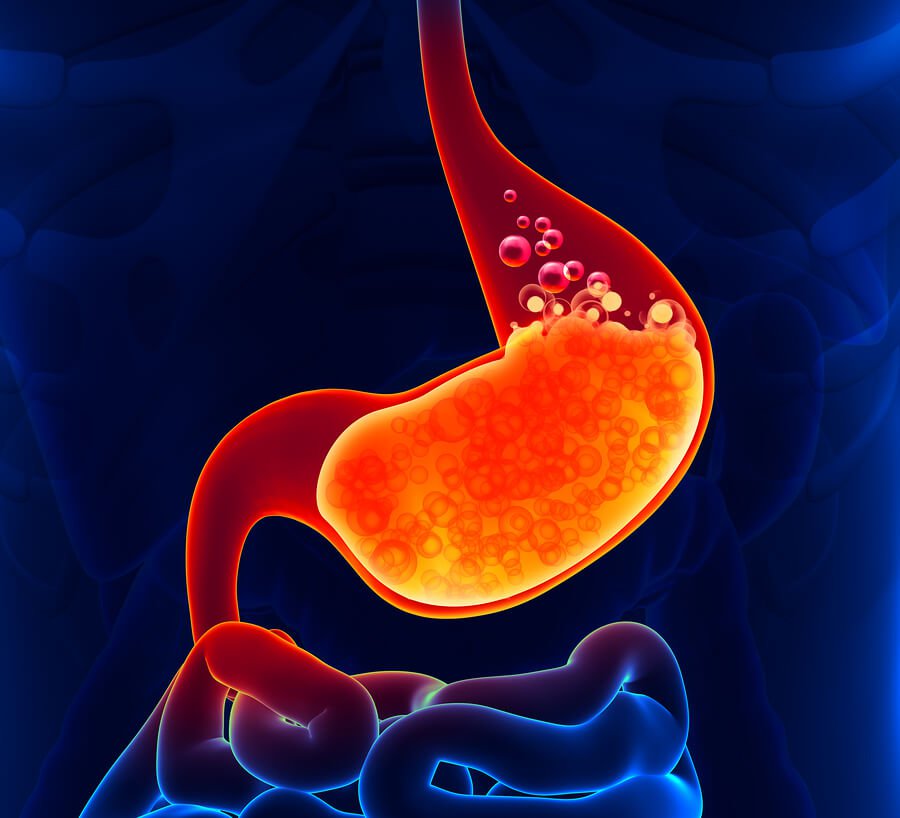Gastritis is an inflammation of the stomach’s lining. It can be caused by smoking, drinking too much alcohol, long-term use of aspirin or other nonsteroidal anti-inflammatory drugs such as ibuprofen or naproxen, infection with the bacterium Helicobacter pylori, severe injury, or shock. Sometimes gastritis is an autoimmune condition, in which the immune system mistakenly attacks the cells that line the stomach.
Symptoms of gastritis
Symptoms of gastritis can include:
• Abdominal pain or discomfort
• Constant pain between the navel and lower ribs
• Nausea, sometimes with vomiting
• Poor appetite
• Belching, bloating, or a feeling of fullness in the abdomen that is made worse by eating.
Serious gastritis can lead to erosion of the stomach lining, which can cause painful ulcers and black stools (a sign of bleeding in the stomach). It can also cause anemia, or too few red blood cells in circulation. This can lead to fatigue and being short of breath with physical activity.
Diagnosis
Although your doctor is likely to suspect gastritis after talking to you about your medical history and performing an exam, you may also have one or more of the following tests to pinpoint the exact cause.
Tests for H. pylori. Your doctor may recommend tests to determine whether you have the bacterium H. pylori. Which type of test you undergo depends on your situation. H. pylori may be detected in a blood test, in a stool test or by a breath test.
For the breath test, you drink a small glass of clear, tasteless liquid that contains radioactive carbon. H. pylori bacteria break down the test liquid in your stomach. Later, you blow into a bag, which is then sealed. If you’re infected with H. pylori, your breath sample will contain the radioactive carbon.
Using a scope to examine your upper digestive system (endoscopy). During endoscopy, your doctor passes a flexible tube equipped with a lens (endoscope) down your throat and into your esophagus, stomach and small intestine. Using the endoscope, your doctor looks for signs of inflammation.
If a suspicious area is found, your doctor may remove small tissue samples (biopsy) for laboratory examination. A biopsy can also identify the presence of H. pylori in your stomach lining.
X-ray of your upper digestive system. Sometimes called a barium swallow or upper gastrointestinal series, this series of X-rays creates images of your esophagus, stomach and small intestine to look for abnormalities. To make the ulcer more visible, you may swallow a white, metallic liquid (containing barium) that coats your digestive tract.
Treating gastritis
Treating gastritis begins with stopping or removing the cause, such as drinking too much alcohol or smoking. If you take nonsteroidal anti-inflammatory drugs for arthritis or other pain, trying an alternative such as misoprostol may be important.
• • Modifying diet: If you think that certain foods make your symptoms worse, keep a food diary and track what you eat against your symptoms. If you see connections between certain foods and symptoms, don’t eat the offending foods for a while and see if your gastritis improves. Problem foods tend to be those that are fatty, spicy, or very acidic, like coffee, orange juice, tomato juice, and colas.
• • Medication: A common treatment for gastritis is taking medication to decrease stomach acid.
Several classes of medication can do this:
• over-the-counter antacids
• over-the-counter or prescription H2 blockers (also known as acid reducers): such as Tagamet, Zantac, Pepcid, and their generic equivalents and proton pump inhibitors such as omeprazole (Prilosec), esomeprazole (Nexium), lansoprazole (Prevacid), and pantoprazole (Protonix). Proton pump inhibitors are the strongest acid blockers, but are usually more expensive.
• Triple therapy: If your test for Helicobacter pylori is positive, a two-week course of “triple therapy” may stop the infection and improve your symptoms. Triple therapy includes a proton-pump inhibitor plus two different antibiotics, amoxicillin and clarithromycin.
Allergic Gastritis
Children with food allergy as diagnosed by an open elimination challenge test have no higher incidence of gastritis than children without food allergy. An exception may be infants who are allergic to cow’s milk protein, in whom hematemesis and endoscopic signs of gastritis are common.
